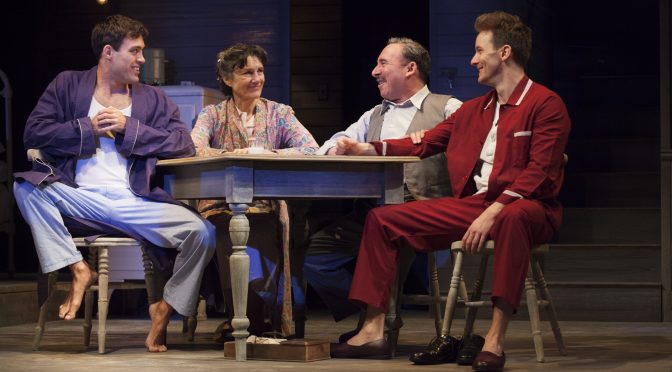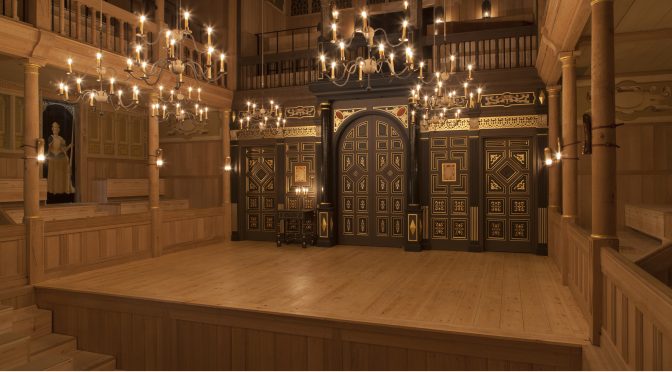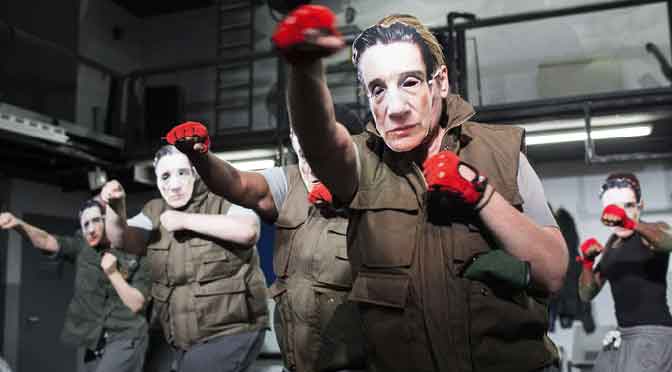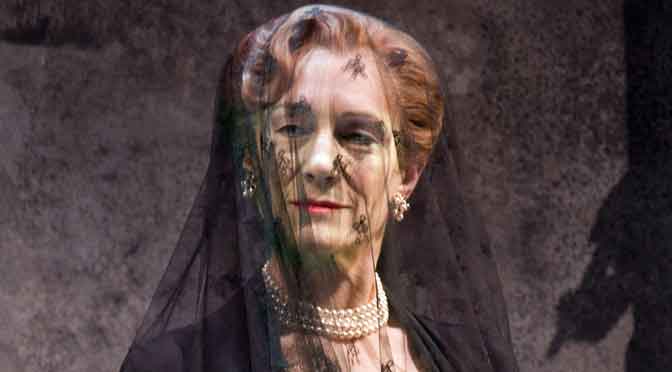Gregory Doran’s revival of Arthur Miller’s Death Of A Salesman fully justifies the director’s claim that this is the greatest American play of the 20th century. Although rooted in post-war US society, Miller’s family tragedy and critique of capitalism transcends time and place. Perhaps recent economic woes make this powerful play freshly pertinent: the loss of job security for long-serving salesman Willy Loman rings alarm bells for us all. And perhaps, too – aided by our increased awareness of dementia – Willy’s tragic decline has added poignancy. Just as likely, the play is simply a masterpiece.
Antony Sher is confident and controlled in the lead role. Clearly passionate about the part, Sher projects an intensity that enfolds you. It’s an exceptionally subtle and intelligent delivery: for all Willy’s faults, we see why his family loves him, he isn’t made an underdog and there are no excuses for his behaviour – but he still retains our sympathy. Willy’s confidence seesaws constantly, moments of self-doubt are carefully hinted at. When Willy is presented with the gas pipe he plans to kill himself with, Sher’s whole body becomes frozen. It’s a tremendous theatrical moment.
Backed by Harriet Walter as Willy’s wife, with Alex Hassell and Sam Marks as his sons, the family struggles with the delusions of success and excess of optimism that construct their dreams. This is an unbeatable quartet of performances. The fight to see facts instead of fantasy is a relentless focus. Willy’s memories, possibly false, presented as the consequence of his age and misfortune, slide into the action dynamically. The downward spiral of the whole family in the second half is gut-wrenching and miraculously suspense-filled. We can all predict what’s coming but Doran makes it riveting, obeying the play’s demand that “attention must be paid”.
Until 18 July 2015
Photo by Ellie Kurttz




